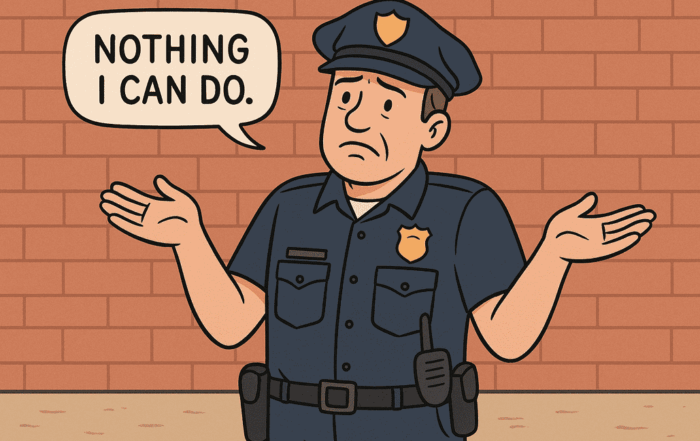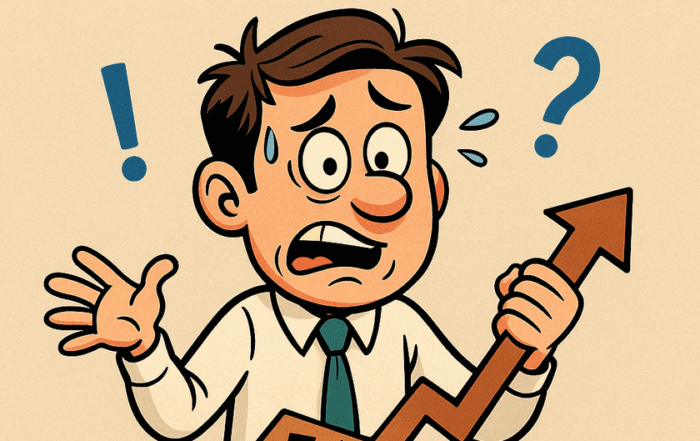
Florida's $1,000 Property Tax Rebate: A Win for Homeowners, But What About Us Investors?
As someone who owns 32 properties across Florida—a mix of rentals, flips, and one homesteaded primary residence—I felt compelled to speak up about this new proposal by Governor Ron DeSantis.
The governor recently introduced a plan that would provide $1,000 rebate checks to owners of homesteaded properties. The goal? Offset state-mandated school property taxes while still fully funding the districts. I get it. With inflation still a major pain, a check at the end of the year sounds nice to just about anyone. But if you’re like me and have the majority of your portfolio in non-homesteaded rental properties, this rebate doesn’t do a thing for you.
Let’s unpack this.
My Personal Take as an Investor
I live in my primary residence, which is homesteaded—so yes, I could receive the $1,000 rebate. Great. But for my other 31 properties, all held as long-term rentals or short-term flips? Not a penny.
Investors like us already don’t qualify for the Save Our Homes 3% cap. We get the 10% cap on annual assessed value increases for non-homesteaded properties. It helps, sure, but it’s not a shield against rising taxes, insurance hikes, and labor shortages.
If we’re talking about affordability and market health, then we need to talk about landlords. We’re housing thousands of Florida residents. We’re keeping neighborhoods alive. And right now, it feels like we’re being left out of the conversation.
Flippers Need to Pay Attention
If you’re in the flipping game, this rebate won’t hit your bottom line unless your end buyer qualifies. And even then, it may not apply unless they’re homesteaded by January 1 of the tax year. That means timing your deals becomes more complicated.
And let’s not forget the tax reset that happens after a flip sale. Buyers may qualify for the rebate in the future, but they’ll likely be dealing with much higher assessed values, which eats up that $1,000 real quick.
Plus, let’s be real—this rebate doesn’t change the bigger challenges flippers are facing: rising material costs, longer holding periods, buyer hesitation from high interest rates, and local permitting delays. So while this rebate might give your buyer a warm fuzzy feeling, it’s not likely to be the factor that closes a deal.
A Step Toward Something Bigger?
Now, here’s where it gets interesting.
Governor DeSantis hinted that this rebate is just the beginning. He’s publicly discussed eliminating property taxes altogether. Now, as a guy who’s been in the trenches and financed my entire portfolio through DSCR loans, let me tell you: that could be a game-changer.
Lower or no property taxes means better cash flow, more purchasing power, and a flood of investors re-entering the market. For flippers, it means your buyer pool expands. For landlords, it means more breathing room between rent and expenses.
But make no mistake—if property taxes are phased out, the money has to come from somewhere. Will sales taxes go up? Will new fees be introduced? If you’re holding properties, especially in tourist-heavy counties, keep your eye on any shift toward increased consumption taxes or local assessments. What you save in one place, you might pay elsewhere.
What I’m Watching For
-
Legislation progress: This rebate still needs to pass. The Legislature could modify it or kill it entirely.
-
Long-term reform: If this leads to permanent property tax relief, we need to think about how we structure our deals today.
-
Public reaction: If homeowners love this idea, we could see momentum toward a voter-approved constitutional amendment in 2026.
-
Investor sentiment: A growing buzz from other landlords and flippers could mean increased competition for deals in 2025 and beyond.
-
Lending environment: If taxes drop but rates stay high, we may see banks loosen up on DSCR and LTV thresholds to remain competitive.
From Experience: What Happens If Taxes Go Down
Here’s what I know from experience: when operating costs drop, affordability goes up. I’ve had properties where a $150/month swing in taxes made the difference between a property being cash flow positive or not. Imagine that on 32 properties. You better believe lower taxes would let me pass along savings to tenants or reinvest in more projects.
Same with flipping. When taxes are low, buyers feel more comfortable. They’re more confident taking on a mortgage, and your resale timeline gets shorter. Everybody wins.
If the long-term vision of eliminating property taxes gains traction, it could attract a new wave of out-of-state investors. People sitting on the sidelines because of high holding costs will jump in. That’s why I’m watching this like a hawk.
And it’s not just about the dollar amount. It’s about the psychology of the buyer and investor. When they know they won’t get hammered by taxes in year two, they make faster decisions.
My Advice to Fellow Investors
Don’t ignore this just because the check isn’t coming your way this time. This rebate is more than a handout. It’s a signal. And smart investors pay attention to signals.
Track the bill. Understand how your county assesses property values. Start thinking about how this could affect your acquisition models, your rental pricing, and even your 2026 tax strategy.
More than anything, be ready. Because if the state really does head toward lower property taxes or big structural changes, you want to be the one who saw it coming—not the one playing catch-up.
You don’t have to agree with every policy, but if you ignore them, you miss out on opportunity. And in this market, opportunity is everything.
Written by Jorge Vazquez, CEO of Graystone Investment Group & its subsidiary companies and Coach at Property Profit Academy
http://propertyprofitacademy.com
Keep it consistent, stay patient, stay true—if I did it, so can you! Ready to learn? Let me guide you at propertyprofitacademy.com
Pick your expert. Book your free 15-minute consult now. We are here to help!
Our Top Articles
What’s Needed to Remove a Squatter
Jorge Vazquez2025-08-06T02:12:31+00:00August 6th, 2025|Comments Off on What’s Needed to Remove a Squatter
“Nothing I Can Do”: What It Really Takes to Remove a Squatter in Florida Let me tell you a [...]
Are Five-Year ARM Loans Safe in 2025?
Jorge Vazquez2025-08-05T01:35:57+00:00August 5th, 2025|Comments Off on Are Five-Year ARM Loans Safe in 2025?
Are Five-Year ARM Loans Safe in 2025? By Jorge Vazquez, CEO of Graystone Investment Group Let’s be real—how many [...]
The Best Cash-Flowing Markets Are Not the Best BRRRR Markets
Jorge Vazquez2025-08-04T19:30:33+00:00August 4th, 2025|Comments Off on The Best Cash-Flowing Markets Are Not the Best BRRRR Markets
A new investor asked me this online today: “Jorge, what’s the best cash-flowing market for the BRRRR strategy?” I [...]
Property Profit Academy:
✔ Learn to buy properties with little to no money down.
✔ Build a $10M portfolio step by step.
✔ Master strategies like BRRRR and house hacking.








